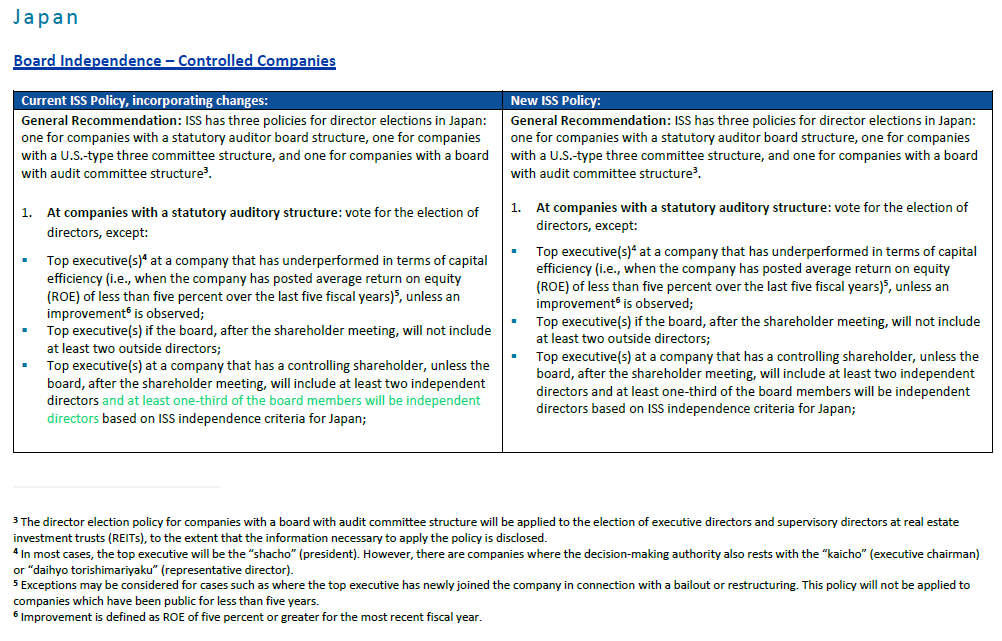
Some research organizations reported that Japanese companies have enhanced the corporate governance and others say the improvement wasn’t higher than expectations. Then, how fast has the corporate governance in Japan made progress for a few years? There would be different perspectives on which criteria each person focus. We would like to show one of the easiest ways that we can see the progress. It is the % of Independent Outside Directors (INEDs) of the board of directors (BOD) that shows very well how fast corporate governance in Japan has improved.
Please see the following 2 charts. The first pie chart shows the number of companies of >50% INEDs and =<50% INEDs in the BOD, respectively as of November 2019. The total number of companies was the companies METRICAL INC. covers as the core research universe (most of companies are listed TSE-1st Section and/or JPY10 billion market cap). A number of companies are included in the =50% INEDs in the pie chart will decrease significantly.


